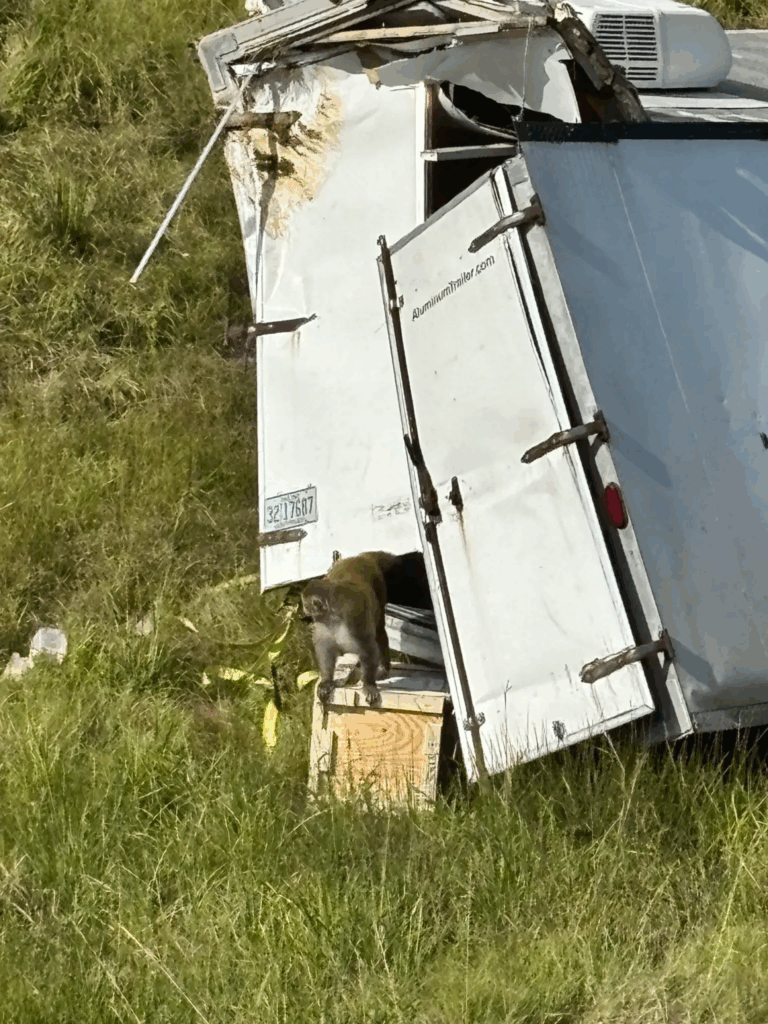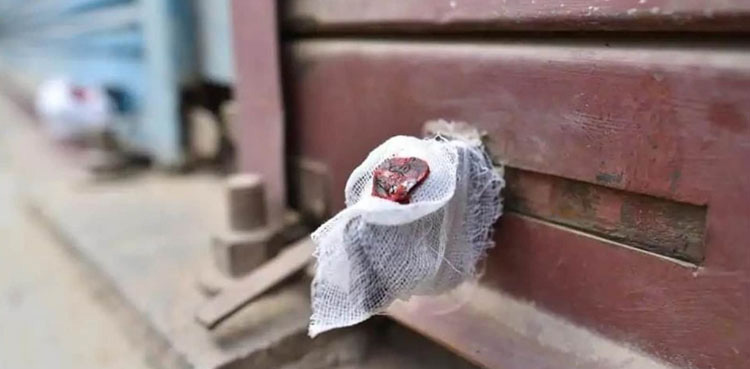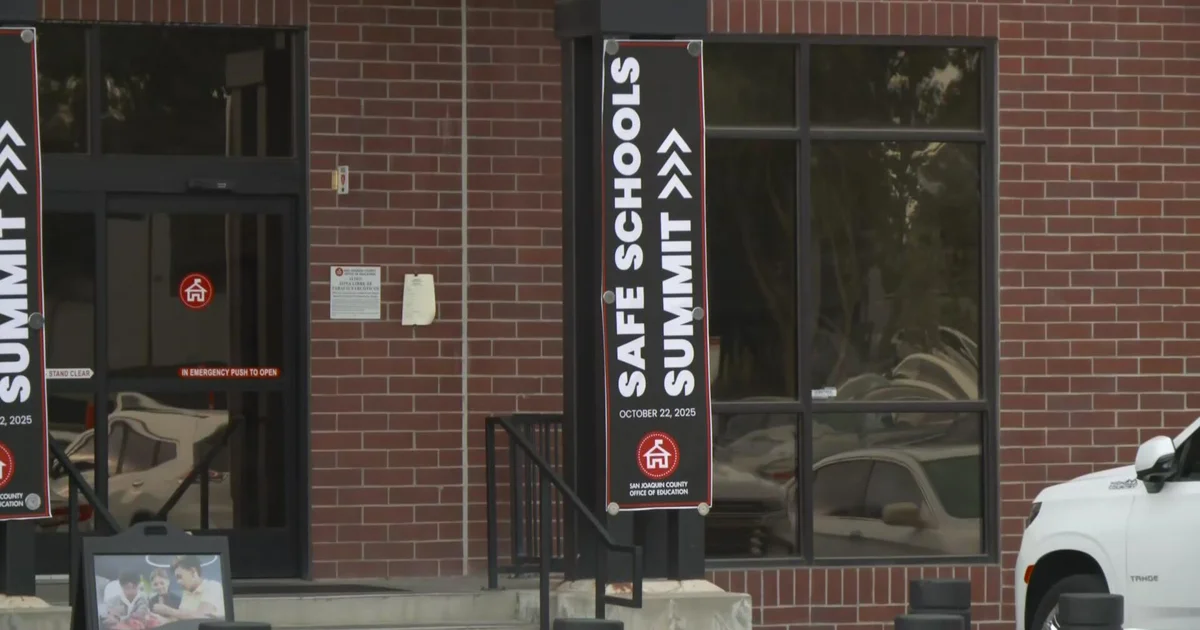Copyright breezyscroll

Authorities Warn Residents to Stay Away as Search Continues An “aggressive” rhesus monkey is reportedly on the loose in Mississippi after a truck carrying lab animals overturned on an interstate near Heidelberg earlier this week. The accident sparked alarm after local authorities initially claimed the monkeys were infected with COVID-19, hepatitis C, and herpes—a statement later disputed by Tulane University, which said the animals were not infectious. The Jasper County Sheriff’s Department said the vehicle, a white trailer transporting the monkeys from a research facility affiliated with Tulane University, veered off the road Tuesday afternoon and crashed into a ditch. Several cages broke open during the impact, allowing some monkeys to escape. “These monkeys are aggressive to humans,” the department initially warned on Facebook, advising residents not to approach the animals without protective gear. All but one of the escaped primates were reportedly captured and euthanized by local authorities. As of Tuesday evening, one monkey remained at large. Conflicting Reports: Were the Monkeys Infectious? Shortly after the sheriff’s department issued its warning, Tulane University released a statement denying the claim that the monkeys carried any infectious diseases. “The primates in question belong to another entity and are not infectious,” Tulane said. “We are actively collaborating with local authorities and will send a team of animal care experts to assist as needed.” Tulane’s National Primate Research Center, located in Covington, Louisiana, is one of the country’s major biomedical facilities studying infectious diseases. However, the university emphasized that the monkeys involved in the crash were not carrying COVID or other viruses as part of any active research project. This contradiction has fueled confusion and online speculation about the safety of the animals, the nature of their transport, and the accuracy of initial reports. The Scene of the Crash Photos released by the Jasper County Sheriff’s Department showed a damaged trailer lodged in a ditch, with wooden crates scattered nearby. While the exact number of monkeys on board has not been confirmed, the sheriff’s office said most were quickly recovered. The surviving animals were reportedly humanely euthanized due to concerns about containment and potential exposure risks—though Tulane’s clarification suggests the move may have been precautionary rather than medically necessary. Officials from the Mississippi Department of Wildlife, Fisheries, and Parks are now assisting in the search for the remaining monkey, described as “fast and wary of humans.” Residents in rural areas north of Heidelberg have been advised to call 911 immediately if they spot the animal and to avoid any contact. Public Reaction and Viral Confusion The sheriff’s post quickly went viral, drawing both concern and disbelief. Social media users compared the scene to a “movie plot gone wrong,” while animal rights advocates criticized the euthanization of the captured monkeys. Some online commenters expressed skepticism about the initial claim that the primates were infected, questioning whether misinformation had caused unnecessary panic. “If these monkeys were part of a COVID or hepatitis experiment, that would be alarming—but Tulane says they weren’t. We need clarity,” one local resident wrote on Facebook. Why Rhesus Monkeys Matter in Research Rhesus macaques (Macaca mulatta) are among the most widely used primates in biomedical research. Their genetic similarity to humans—about 93%—makes them valuable for studying infectious diseases, vaccines, and neuroscience. Average weight: 9 to 26 pounds, depending on sex. Reproduction: Typically one offspring per year. Lifespan: Up to 25 years in captivity. Their contributions to science are significant: rhesus antigens helped scientists identify human blood groups, and a rhesus monkey named Albert II became the first primate sent into space by the U.S. in 1948. However, their use in labs also raises ongoing ethical debates about animal testing, transport safety, and the transparency of biomedical research. What Happens Next As of Tuesday afternoon, the Jasper County Sheriff’s Department said its search for the remaining monkey continued with assistance from state wildlife officers and a professional animal disposal company. Officials have not confirmed whether they intend to capture or euthanize the animal upon finding it. Tulane University has said it will provide an animal care team to help ensure the operation is conducted safely. The public has been urged to remain calm and stay away from wooded areas near the crash site. Authorities said there is no confirmed threat to human health at this time.



